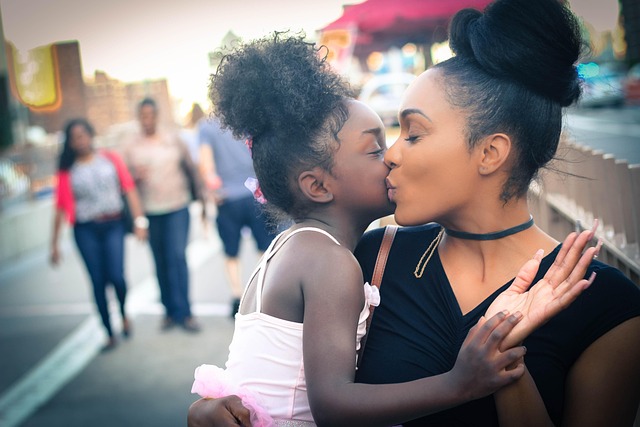Grandparent visitation in Oregon is governed by state law and guided by specific circumstances. To exercise visitation rights, grandparents must navigate a court process demonstrating a substantial bond and their positive impact on the grandchild's life. The process involves filing a petition, providing evidence, and adhering to factors like the child's best interests, existing relationships, and parental willingness. Understanding Oregon's family visitation laws and documentation requirements is crucial for both grandparents and families involved. After gaining legal rights, maintaining a strong bond requires consistent communication, regular visits, and respect for the grandchild's boundaries.
- Understanding Grandparent Visitation Rights in Oregon: An Overview
- Who Qualifies for Grandparent Visitation?
- Establishing Legal Visitation: The Steps to Take
- Factors Influencing Visitation Decisions in Oregon Courts
- Enhancing Your Case: Evidence and Documentation Tips
- Post-Visitation: Maintaining Healthy Relationships with Grandchildren
Understanding Grandparent Visitation Rights in Oregon: An Overview

In Oregon, grandparent visitation rights are recognized and protected under state law, offering a legal framework for grandparents to maintain meaningful relationships with their grandchildren. The state’s family visitation laws aim to balance the interests of both parents and grandparents, ensuring that children have access to extended family members while also preserving parental autonomy. Understanding these rights is crucial for grandparents seeking visitation and for families navigating this aspect of family law.
Oregon’s grandparent visitation guidelines outline specific circumstances under which grandparents can petition for visitation. These include situations where the parents are divorced or separated, deceased, or unable to care for the child due to mental or physical health issues. Legal visitation for grandparents involves a court process where they must demonstrate a significant relationship with the grandchild and their ability to provide a positive impact on the child’s life. With these rights in place, it is essential for grandparents to familiarize themselves with the legal procedures and evidence requirements to ensure a successful outcome.
Who Qualifies for Grandparent Visitation?

In Oregon, grandparent visitation rights are recognized and protected by law, providing a legal framework for grandparents to spend time with their grandchildren. To qualify for grandparent visitation, individuals must establish a significant relationship with the child, often demonstrated through regular interaction and involvement in the grandchild’s life. This could include being an active participant in raising the child, sharing in important family events, or maintaining a close bond even if not legally recognized as a parent.
Legal visitation for grandparents does not automatically apply to all situations. It requires a conscious effort to foster and maintain a relationship with the grandchild and, in many cases, court intervention when parents object to or limit grandparent access. Understanding Oregon’s visitation laws is crucial for grandparents seeking time with their grandchildren, ensuring a clear path forward and promoting the best interests of the family.
Establishing Legal Visitation: The Steps to Take

Establishing legal visitation rights for grandparents in Oregon involves a structured process that ensures fairness and safety for all parties involved. The first step is to consult with an experienced family law attorney who specializes in grandparent visitation cases. They will guide you through Oregon’s specific laws, which provide a framework for determining what constitutes reasonable visitation. This consultation is crucial as it helps clarify your rights and the potential outcomes based on your unique situation.
Once informed, the next steps involve filing a petition with the court requesting grandparent visitation. The court will then consider various factors, including the child’s best interests, the existing relationship between the grandchild and grandparent, and any concerns regarding stability and safety. A judge will review the evidence presented and make a decision, ultimately determining a visitation schedule that aligns with Oregon’s family visitation laws. This process ensures that grandparents’ rights are protected while also prioritizing the well-being of the child.
Factors Influencing Visitation Decisions in Oregon Courts

In Oregon, factors influencing grandparent visitation decisions are multifaceted and carefully considered by the court. The primary focus is always on the best interest of the child, taking into account their emotional and psychological needs as well as their relationship with potential visitors. Key aspects that courts consider include the quality and frequency of existing visitation, the parent’s willingness to facilitate a healthy relationship between grandparent and grandchild, and any impact on the child’s stability or routine. The court also evaluates the grandparent’s fitness and ability to provide a safe, nurturing environment for the child during visits.
Legal precedent and specific statutes guide Oregon family courts in determining visitation rights for legal grandparents. These laws aim to balance the rights of parents with the significant role that grandparents can play in a child’s life. Grandparent visitation guidance emphasizes open communication between parents and grandparents, as well as a respect for the child’s relationship with both generations. Understanding these visitation laws is crucial for all parties involved, ensuring fair and consistent outcomes for everyone seeking grandparent visitation rights in Oregon.
Enhancing Your Case: Evidence and Documentation Tips

When building your case for grandparent visitation in Oregon, strong evidence and thorough documentation can significantly enhance your chances of success. Collect all relevant legal documents related to the child’s custody arrangements, including court orders, settlement agreements, or any previous visitation plans. These papers provide a clear understanding of existing agreements and help demonstrate your commitment to adhering to established guidelines.
Create a detailed record of your interactions with the child and their parents. Keep a journal documenting visits, special moments shared, and any positive impact your presence has had on the child’s life. Photos, videos, and letters can also serve as powerful visual or written evidence, showcasing your loving relationship with the grandchild. This documentation not only strengthens your case but also helps the court understand the value of grandparent-grandchild bonds in Oregon family visitation matters.
Post-Visitation: Maintaining Healthy Relationships with Grandchildren

After a successful grandparent visitation in Oregon, maintaining a healthy and meaningful relationship with your grandchildren is paramount. This involves consistent communication and creating a supportive environment that encourages open dialogue. Grandparents should strive to keep their visits regular and predictable, fostering a sense of stability for the child. It’s essential to respect the child’s boundaries and listen to any concerns they express about visitation. Incorporating activities that align with the grandchild’s interests can strengthen the bond.
Additionally, keeping up-to-date with important dates such as school events and holidays ensures you remain actively involved in their lives. Utilize technology to stay connected when physical visits are limited by distance or other constraints. Remember, building a strong relationship requires patience, understanding, and adaptability within the framework of Oregon’s family visitation laws.
